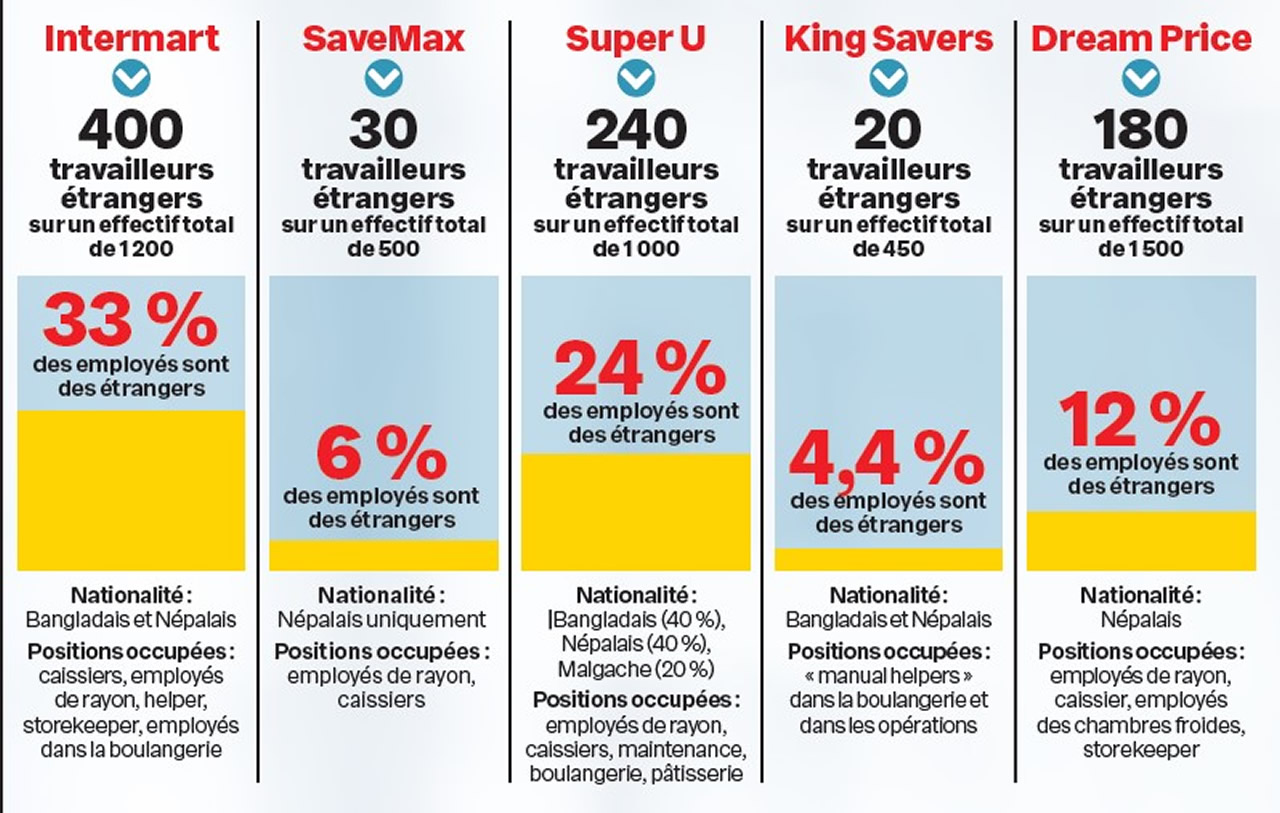LIVE NEWS
You have probably noticed a greater number of foreign workers, especially Nepalese, in supermarkets and hypermarkets in Mauritius. This trend, while beneficial in some ways, also has drawbacks for employers as well as consumers.

Disadvantages of employing Nepalis
- Ignace Lam: “The biggest challenge is the cost of importing workers. We have to plan for administrative procedures, plane tickets, accommodation, which represents an enormous amount per worker. Another concern with the Nepalese is the language barrier. These employees do not have a high level of education and often have difficulty communicating with consumers. »
- Vicky Hanoomanjee: “It takes at least Rs 50,000 to import a worker from abroad. Furthermore, since the Nepalese do not speak English, they often face difficulties in communicating with the public. Another problem is that Nepalese people are not familiar with local products. Training therefore takes time. »
- Sunil Ramsurrun: “At first, Nepalese people in particular find it difficult to adapt to our culture and work environment. But thanks to adequate training, we manage to integrate them into the world of work. Today, some can even communicate a little in Creole. The biggest challenge for us is the cost of importing workers. »
- Alain Saverettiar: “I would say that there are practically no disadvantages with foreign workers. Moreover, these foreign employees ensure that at the end of the day, they complete their tasks. »
The reasons behind the growing number of foreign workers
- Ignace Lam, CEO of Intermart: “The labor shortage is not limited only to textile factories and the hotel industry. All sectors of the economy are affected, and large stores are not spared. Thus, we have no choice but to call on foreigners to continue our operations. »
- Vicky Hanoomanjee, COO of SaveMax: “Mauritians do not want to work weekends and overtime. Furthermore, they are not willing to work for the minimum wage. They want to have much more. Unfortunately, we are unable to meet their expectations. »
- Sunil Ramrurrun, HR Manager of Super U: “With the opening of a new store, we are obliged to strengthen our workforce. But it is very difficult to find Mauritians willing to work in this sector. They are reluctant to work overtime. So, employing foreigners remains the only solution. »
- Alain Saverettiar, general manager of King Savers: “We no longer have the local workforce ready to do certain jobs and work certain hours. »
- Nooreza Fauzee, director of Dream Price: “Even if we offer salaries beyond the minimum wage, Mauritians are not available to work. Furthermore, the rate of absenteeism among Mauritians is very high. »
Call to further open up the importation of workers
- Ignace Lam: “As the labor shortage persists, there is a need to facilitate the importation of foreign workers. Furthermore, there are certain categories of employment for which permits are not granted. We need to review these restrictions. »
- Vicky Hanoomanjee: “We no longer have permission to import Bangladeshis. However, they already know the work and are more accustomed to our way of operating. We appeal to the authorities to revive permits to import Bangladeshi workers into Mauritius. »
- Sunil Ramsurrun: “If we manage to operate in mass distribution, it is largely thanks to foreign workers. So, we need more of this workforce for good continuation and for expansion projects in the future. »
- Nooreza Fauzee: “Bangladeshis were hardworking people. But it's a shame that there is now a halt on import permits. However, Nepalese people are also good workers. With our expansion plan, we want to have more of these foreigners. That the government revise the quota upwards. »
